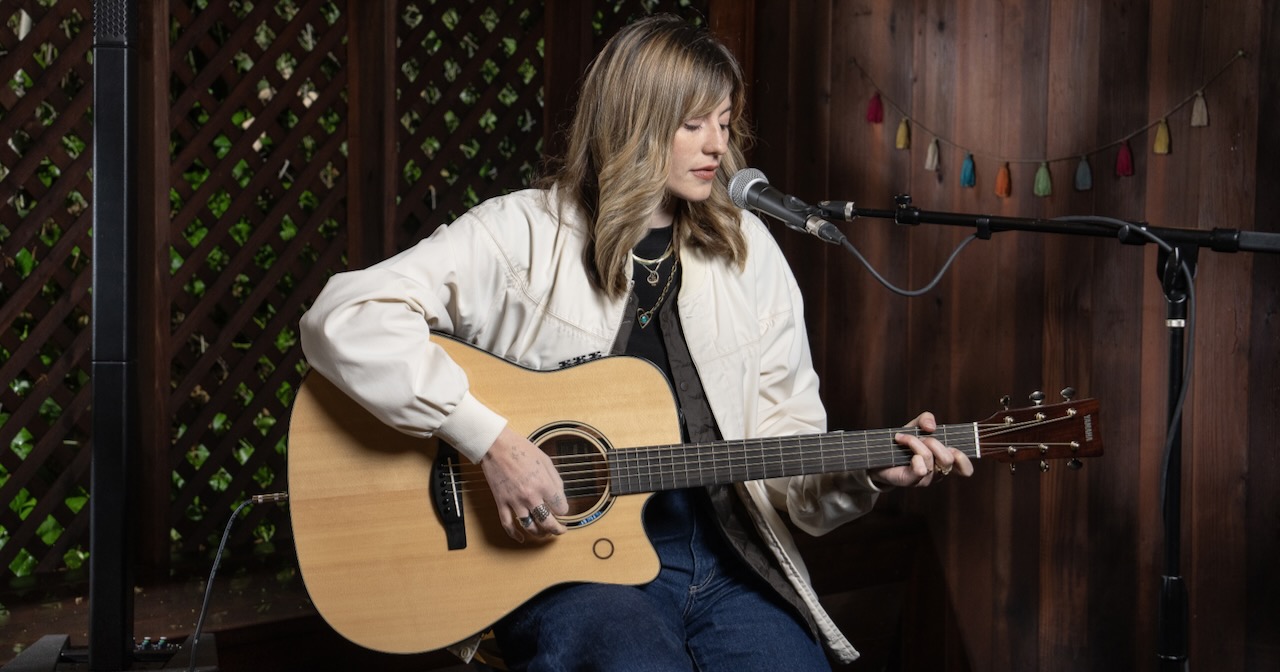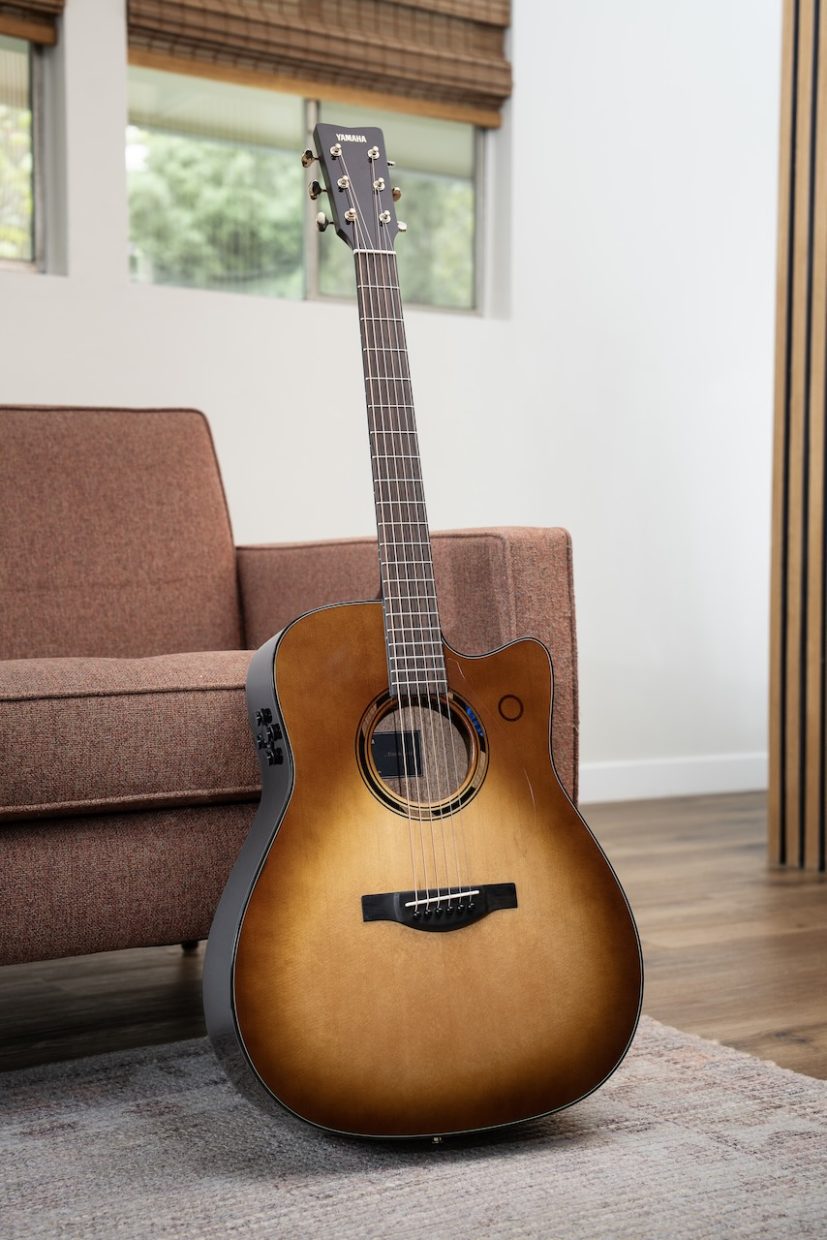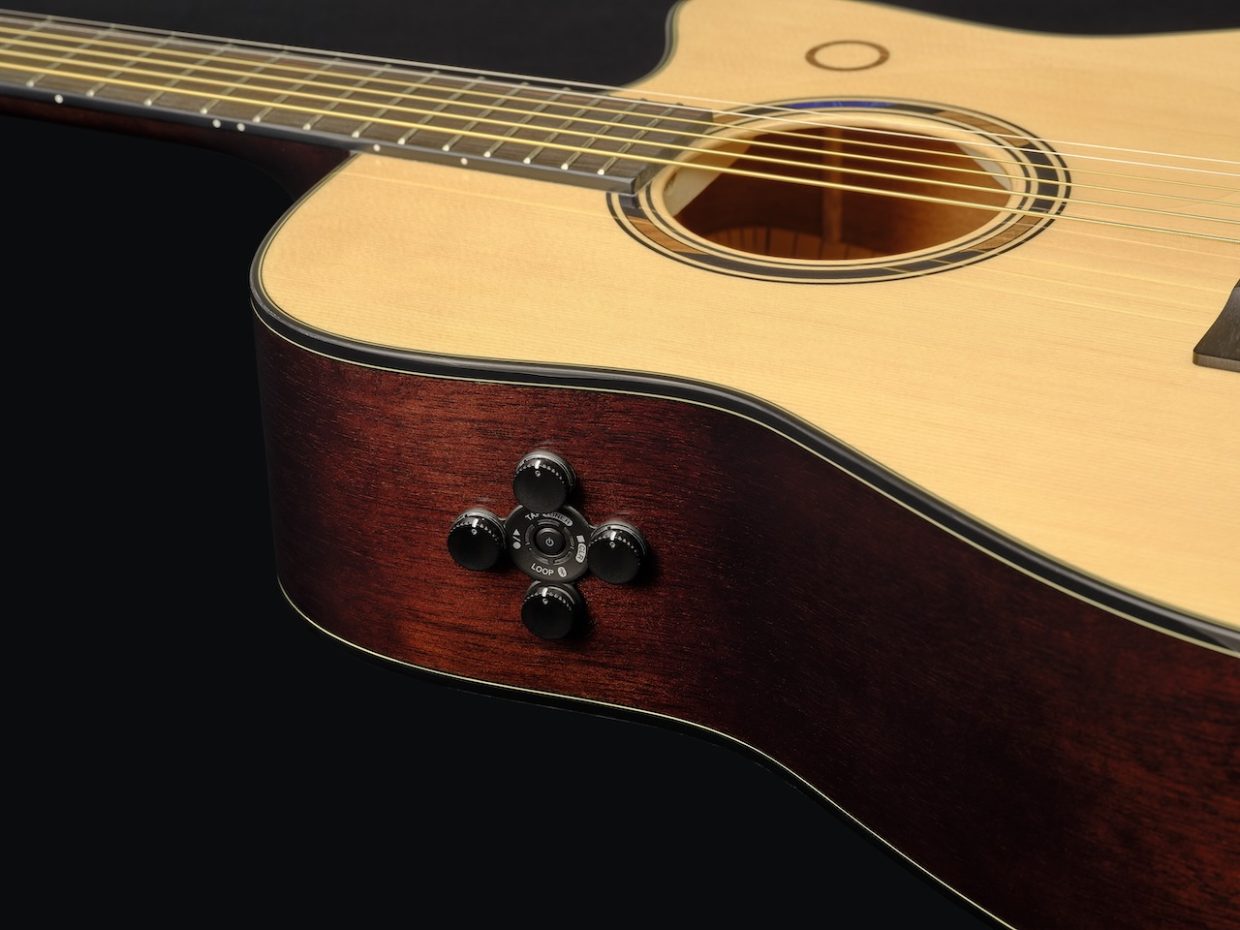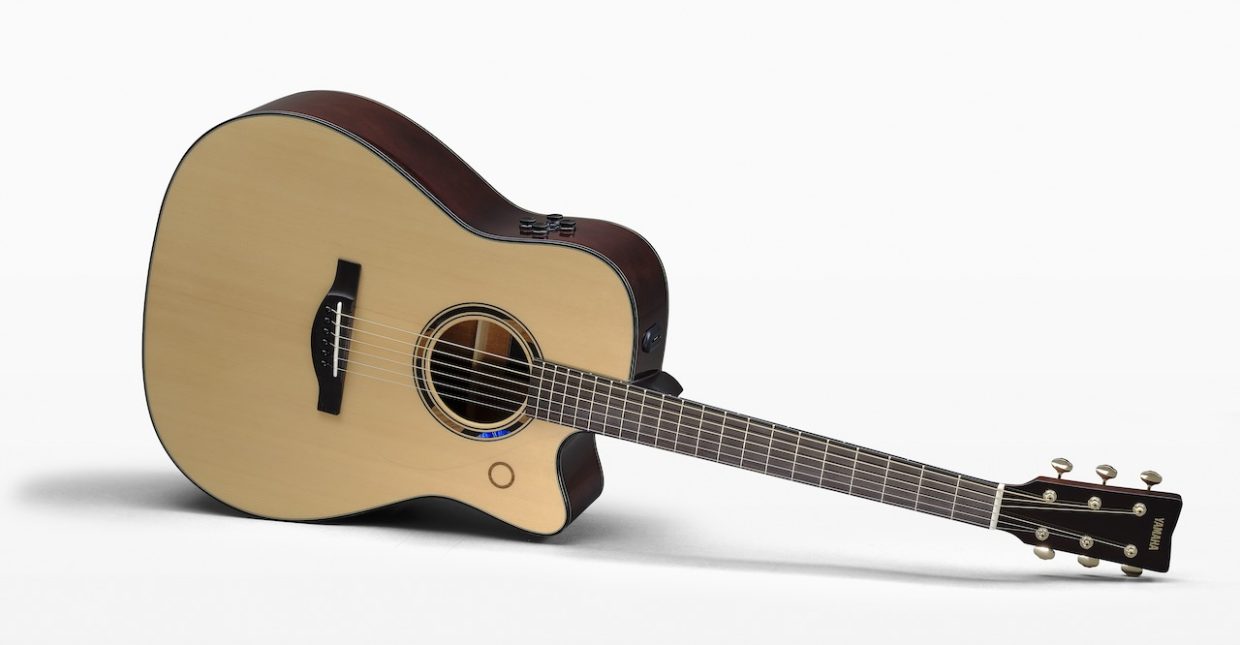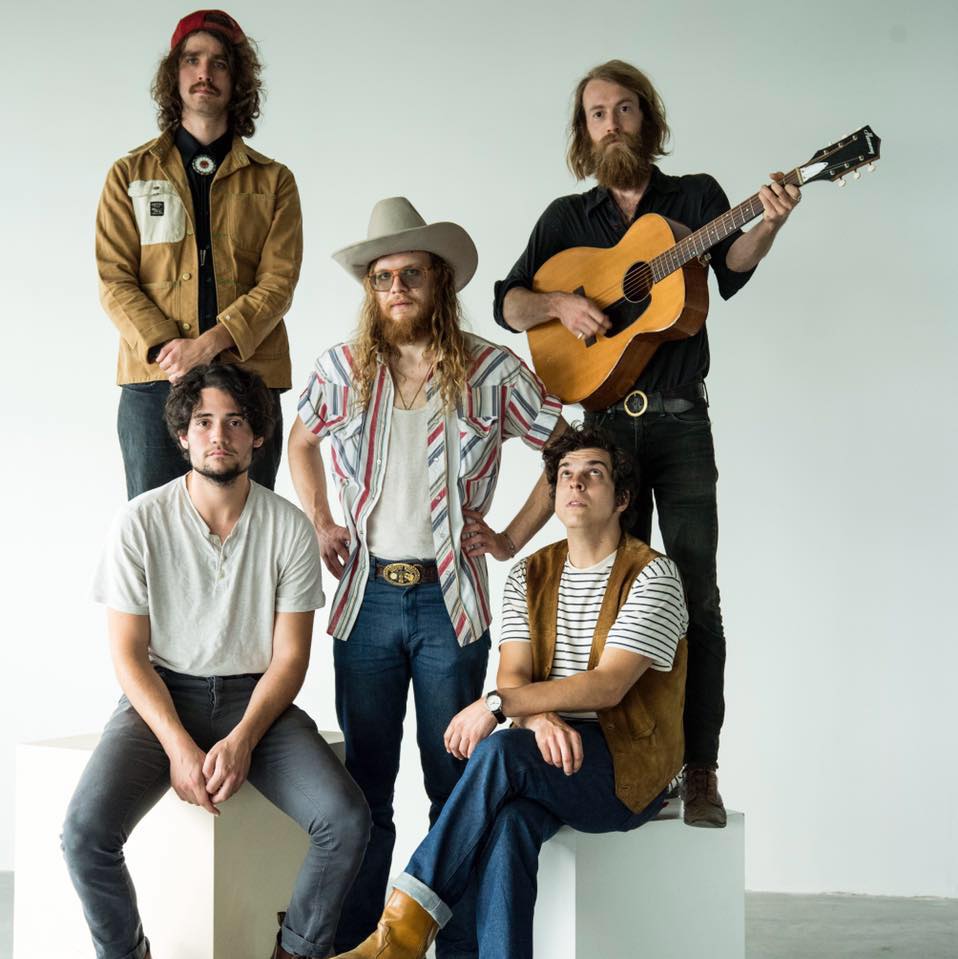When Ohana Music founder Louis Wu says, “Ohana means family,” it’s not hyperbole; it’s the tenet upon which the company was built.
“On an unspoken level it drives everything, including staff, dealer interactions, customers, and products,” says Chris Wu, who oversees the ukulele company’s operations and product marketing.
The Ohana story, which is also Louis Wu’s story, is an inspiring journey of determination and accomplished goals. Wu grew up in Hong Kong and relocated to the U.S. after high school to study engineering. In 2006, after twenty years in his chosen field, he decided on a career change, primarily to spend more time with his wife and two young children. That priority – family – became and remains the basis of Ohana.
Chris Wu was 10 years old when his father launched Ohana. He spent his teen summers alongside his father “doing a little work here and there.” In 2018, after college and a career in accounting, he says, “Things fell into place where it made sense to come onboard full-time.”
From Louis Wu’s Long Beach, California, garage to a 6000-square-foot warehouse, Ohana’s slow and steady growth has taken them from a small business serving one customer at a time to leaders in their field with both their expansive product line and custom shop.
“I have to give full credit to Louis as the visionary leader of the company since day one,” says Wu. “He knows how a company should and needs to be run. Myself and all the staff are here to support that vision, and that really drives the growth. As a team, we’re improving internally every day, and that has been life-changing. It’s wonderful seeing our employees grow in what they do and in their passion for their jobs.”
Ohana’s international reach stems from the dedication of a surprisingly small workforce. “We’ve never had more than ten people at one time,” says Wu. “It is a small company, but the size helps our operation run smoothly and efficiently.”
Ohana ukuleles are available across a spectrum of styles and price points, from beginner models to pro series. Built overseas, the instruments are individually inspected in Long Beach to ensure flawless playability. “At the core, again, we view our customers as family, and we don’t want family to end up with subpar instruments,” says Wu. “Every instrument is given a full inspection and proper setup before it goes to our worldwide dealers. This does affect our output, our capacity, per day, week, month, or year, but that is the way it should be done. We’ve always been proud to do things that way.
“When you receive your Ohana ukulele, you can rest assured that you can take it out of the box and start playing. At the end of the day, being able to connect people to their instruments and spread the joy of music – it feels like introducing another family member to something we love, something we know they will love, and that will work for them.
“As a disclaimer, I will say that there are manufacturers who offer things that we do not, for example, plastic or carbon fiber instruments. Those materials can take a beating on long journeys or camping trips, if you need an instrument to meet those needs. Those ukuleles have their place, but we stay away from making them.
“We focus on sound, acoustics, wood choice, and the quality of the instrument you’re getting right off the bat. Between our 150 to 200 different models, there’s something for everyone. When you buy an Ohana ukulele, you know there is love behind it. Our team has set it up with you, our family, in mind. We want you to have a good instrument, plain and simple, for the right price and the right value. With our custom shop we’ve expanded that range while still keeping the value, the quality setup. We’re just covering a larger market.”
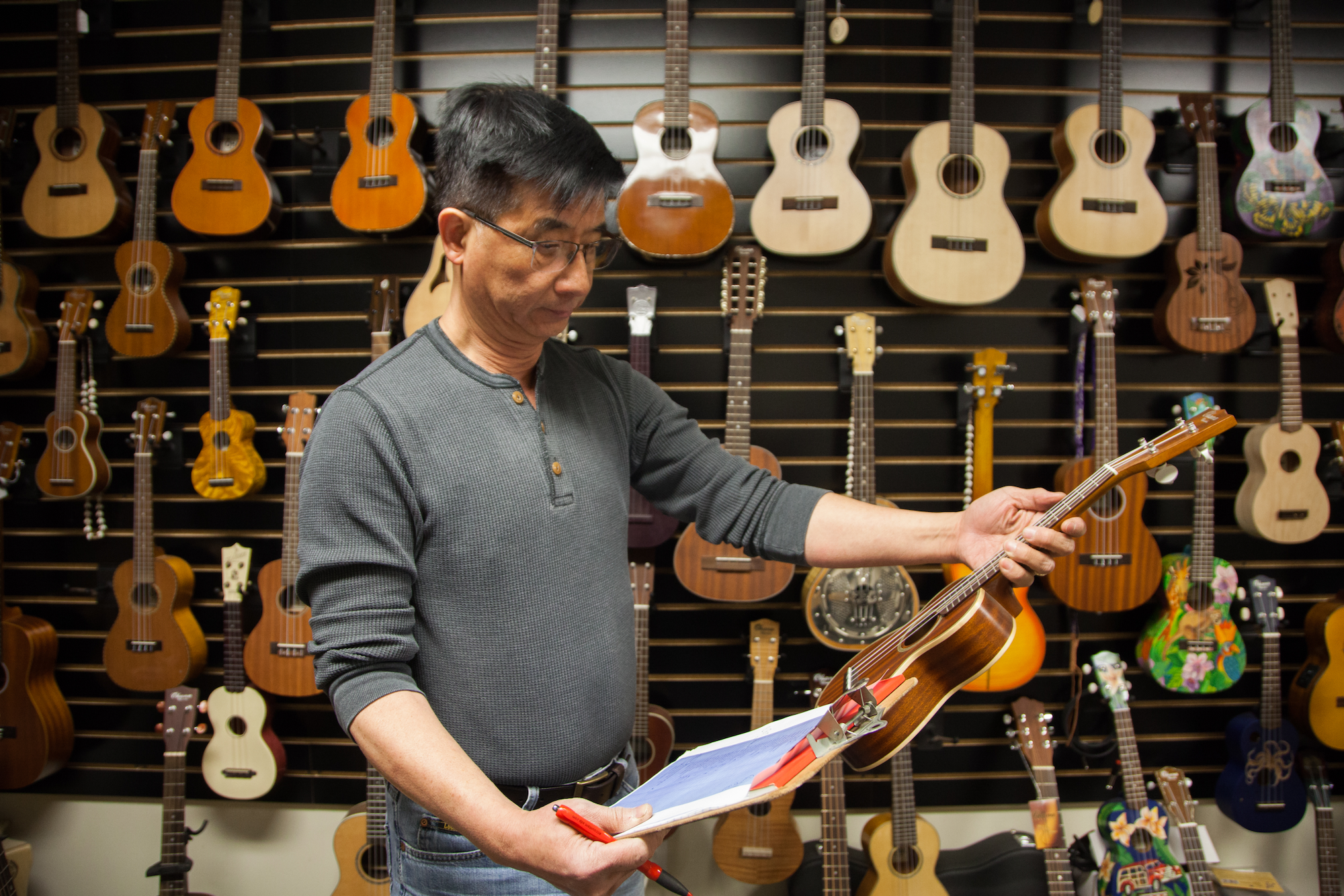
All Ohana tonewoods are sustainably sourced. Most popular, says Wu, are redwood variations from the Pacific Northwest, which feature prominently in limited-edition models. They also source Hawaiian Acacia Koa, Canadian Engelmann spruce, and mahogany, cedar, and other wood sets from local harvesting companies. “We take our time to go through which sets look and sound the best, but are also in compliance with CITES,” he says. “Anything on that list, we won’t touch.”
Ohana Ukuleles will celebrate their twentieth anniversary in 2026. The lead-up to that milestone began unofficially this year at the 2025 NAMM Show with the introduction of their Custom Shop electric tenor and baritone ukuleles.
“Louis and our master luthier, Brad Kahabka, go all out when it comes to planning and executing things that come from the custom shop,” says Wu. “After building acoustic instruments and getting the shop going, it was a question of ‘What’s next?’ We made simple custom instruments, more elaborate custom instruments, and we even built one with wood from The Tree. We had explored the whole range of acoustic instruments and electric was the natural progression. We were excited to enter the market with electric instruments this year. That’s really been our focus for 2025.”
This month, Ohana debuts their Custom Electric Bass, also built by Brad Kahabka. The new instrument, which the company describes as “a counterpart” to their OBU-22 short-scale acoustic-electric bass, features a solid mahogany body, maple top, custom pickups, cutaway design, and 28-inch scale.
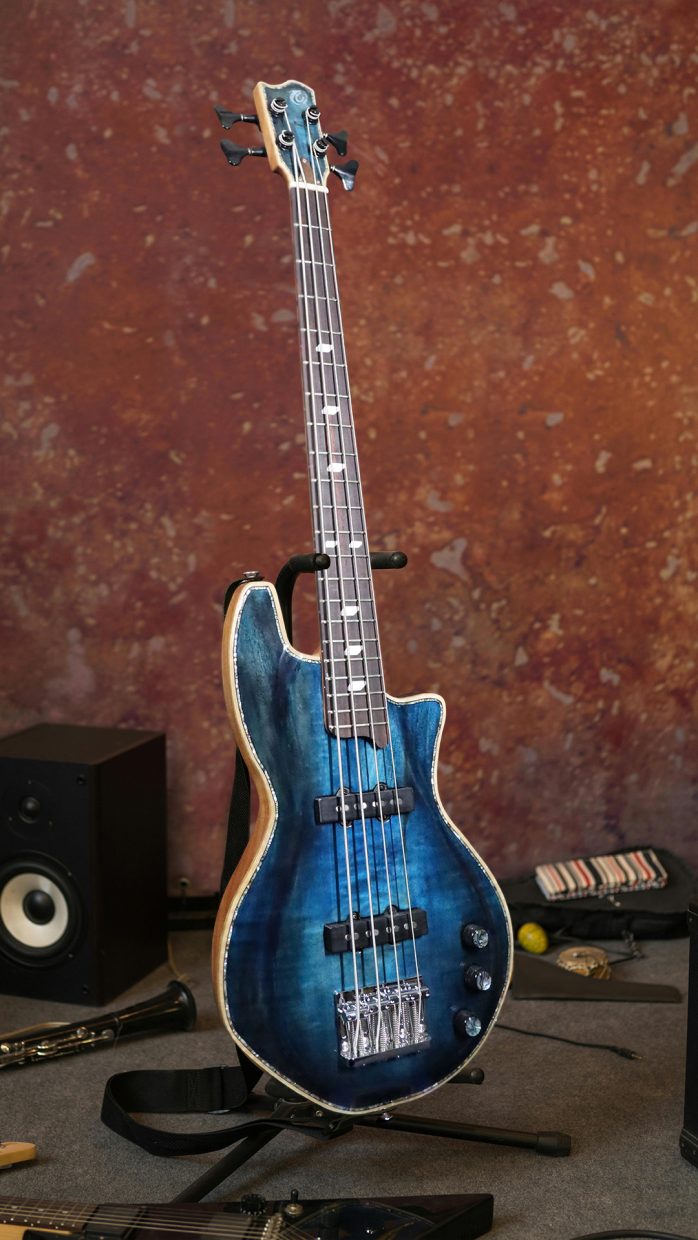
“We’re super excited to bring the first 28-inch-scale bass to market,” says Wu. “There are short-scale basses out there, but after trying different scales, Brad and Louis wanted something portable that we could make here in the shop. We wanted to come to market with this middle ground that still gives you the proper electric bass sound, but is more affordable and still does a lot.”
NAMM 2026 will mark the official kickoff of Ohana’s 20-year celebration, with other events and activities planned for the coming months. “We’ve been thinking about how we want to expand the family brand, ways we can look at to differentiate ourselves,” says Wu. “We’ve been successful in trying that out with our custom electric instruments, which can be additionally customized with different finishes, tuners, and other features. I think the future is in offering options to buyers and customers. We’re looking forward to exploring that more and offering some exciting things for our 20th anniversary.”
Once a wildly popular, then somewhat more niche, instrument – and, to some generations, an accouterment for tiptoeing through tulips – only to regain and increase its “cool factor” during the 2000s, the ukulele continues riding the crest of its popularity. (What could punch the uke’s “hip card” more than Taylor Swift…?)
“They call this the ‘third resurgence,’ this explosion of attention and rise in the number of ukulele players,” says Wu. “The pattern of history is that, in the last century, there were a couple of other rises and falls in popularity and maybe that’s the natural lifecycle of any instrument.
“What really pushed it along this time was the import side – specifically, affordable instruments made overseas, usually in China, but now also in Vietnam and Indonesia. You can pick up a ukulele for anywhere from under a hundred dollars to a few hundred. Making the instrument accessible that way, people took a new interest in ukuleles and stuck with them. There are also companies with longer histories that kept the torch going, and they, too, are part of this resurgence. Ohana began in 2006 and we’re proud to be a part of it.
“It’s been a community effort to get the instrument back on its feet and it’s staying popular. Music is somewhat recession-proof, at least on the stringed instrument side. Throughout COVID, also, people needed music and the ukulele community was able to provide that.”
Ohana keeps eyes and ears on the changing wants and needs of their growing family of customers. “The stereotype of a ukulele player was someone maybe a little older, or retired, or a person with disposable income and the time to play and collect different instruments,” says Wu. “Now, however, we have a younger demographic that is eager to get out there and explore. They see ukuleles all over TikTok, and that’s something we can’t ignore.
“We see patterns, we get feedback from our dealers and customers, and we also see that people of all ages like the baritone ukuleles, the larger instruments. Or they’re developing tastes for certain features: beveled edges, slotted headstocks, armrests, cutaways, different pickups. The options and combinations are endless.
“All of this plays a factor in our innovation, coming up with new combinations and new instruments that people are after. Going back to the baritone, for example, what used to be a one percent demand for that size instrument is now ten percent or more. That number doesn’t sound large on its own, but it is a significant jump. We keep a pulse on what’s out there, what people like or dislike, and we innovate based on that.”
One of Chris Wu’s personal and professional goals is to further expand upon the relationship between bluegrass and ukuleles. “I’ve learned a lot from our bluegrass players, including local players,” he says. “I don’t have a background in bluegrass, but I’ve learned from watching them play bluegrass on ukuleles how much can be created musically from that and in combination with other instruments as well.
“One of our new team members, who helps us with social media, played in a bluegrass band. Watching them go at it was just amazing, and I would really love to explore more of that. Ohana makes banjoleles, and we tried our hands once at a resonator ukulele. It might be time to bring that back. Who knows? As a company, I think bluegrass is something we could tap into.”
@ohanaukuleles @Bernadette from Bernadette Teaches Music demos the Ohana BK-70-8 Baritone from the More Than Four series! #baritone #baritoneukulele #multistring #morethanfour #ukulele ♬ original sound – ohanaukuleles
Integral to Ohana’s legacy and footprint as they enter their third decade is their philanthropic work and community involvement, including ongoing assistance with music programs following the Los Angeles wildfires of 2025.
“As often as we’re able, we love supporting the ukulele community far and wide,” says Wu. “It’s not such a big world, once you’re in it, and it is closely knit. Brands, manufacturers, artists – everyone knows each other, and it becomes even closer when organizations need our support. We do that whenever we can. It’s one of the crucial foundational things that Louis has always worked for with Ohana.
“A lot of times it’s local – schools and, lately, libraries that have started ukulele programs or clubs. We’ve partnered multiple times with the Los Angeles Public Library System as individual libraries have started programs. We provide support and ukuleles.
“A couple of years ago, after the unfortunate wildfires in Maui, one of our music store dealers on the island contacted us about helping rebuild school music programs. We shipped two large pallets of ukuleles to them. We’ve also partnered with Four Strings At A Time, a ukulele nonprofit in Hawaii, to help their local schools. On the continental U.S. side, there’s Ukulele Kids Club, which provides music therapy to children and also instruments to children in hospitals.
“As small as the ukulele community can feel sometimes, especially compared to the guitar community, there are still endless ways that people need support. It’s a blessing and an honor to be able to provide that to them.”
As Ohana moves into the fourth quarter of 2025, prepares for holiday sales, looks ahead to NAMM 2026, and plans its upcoming anniversary, Wu reflects on the year-to-date as “interesting, especially with the tariffs. Everyone has responded a little bit differently, but everyone has also been hanging in there, as much as I can speak for our music stores, our retailers, and the players,” he says.
“We’re looking forward to next year for new things, exciting things. It’s been interesting, but we’ve been getting through it and that’s all we can ask for.”
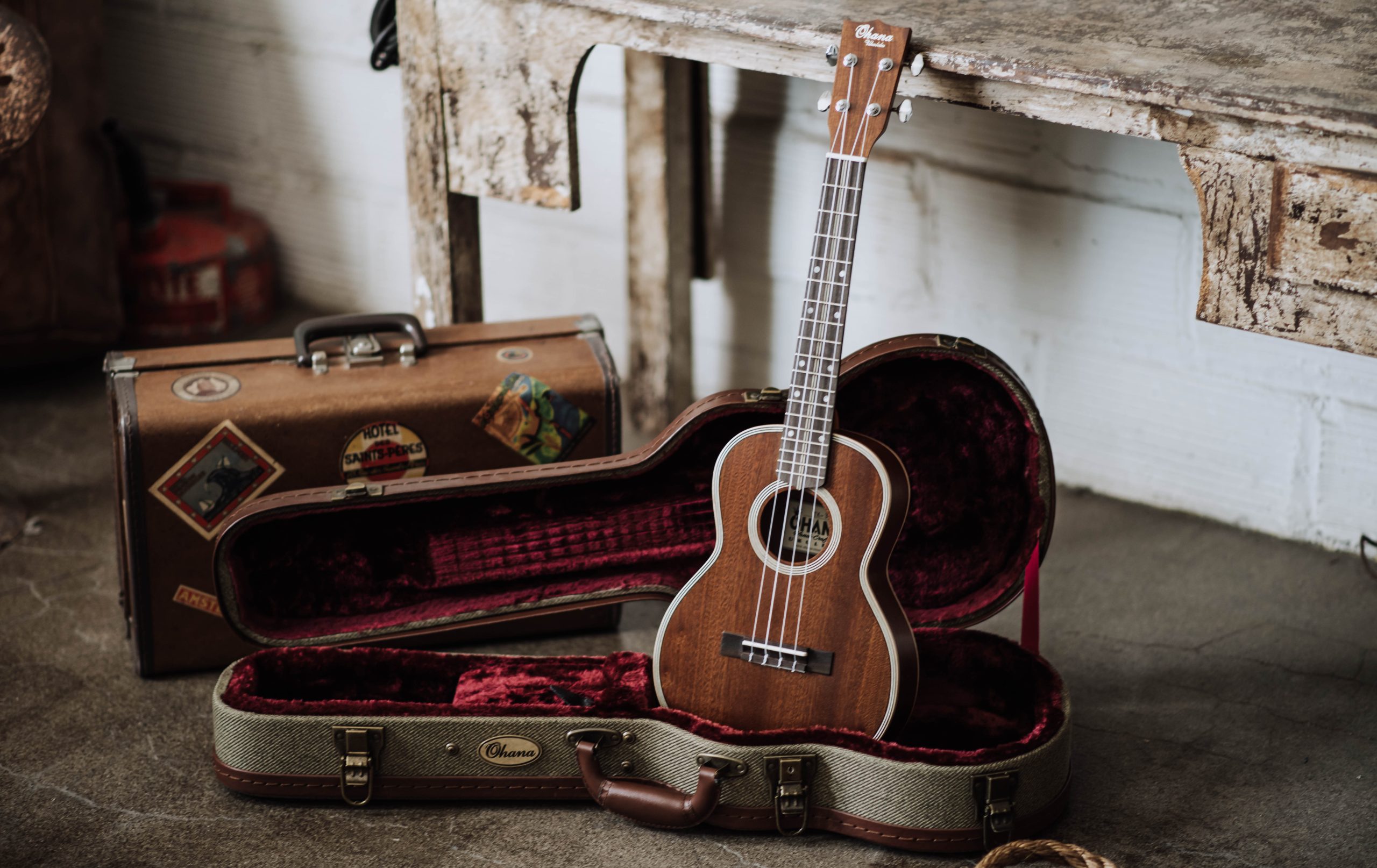
All images courtesy of Ohana Music. Lead image: Ohana O’Nina and Pineapple models lounge on the beach.

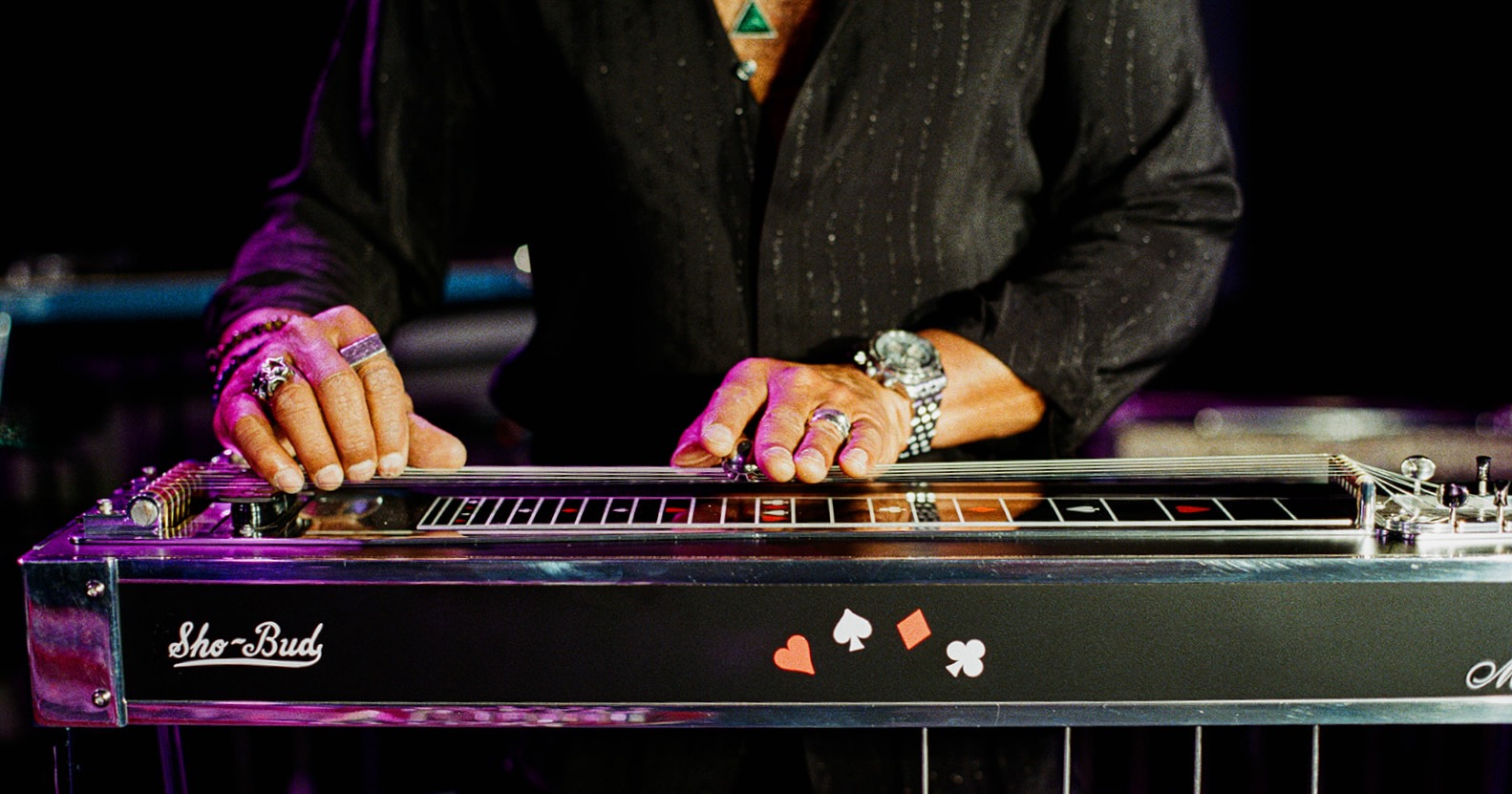
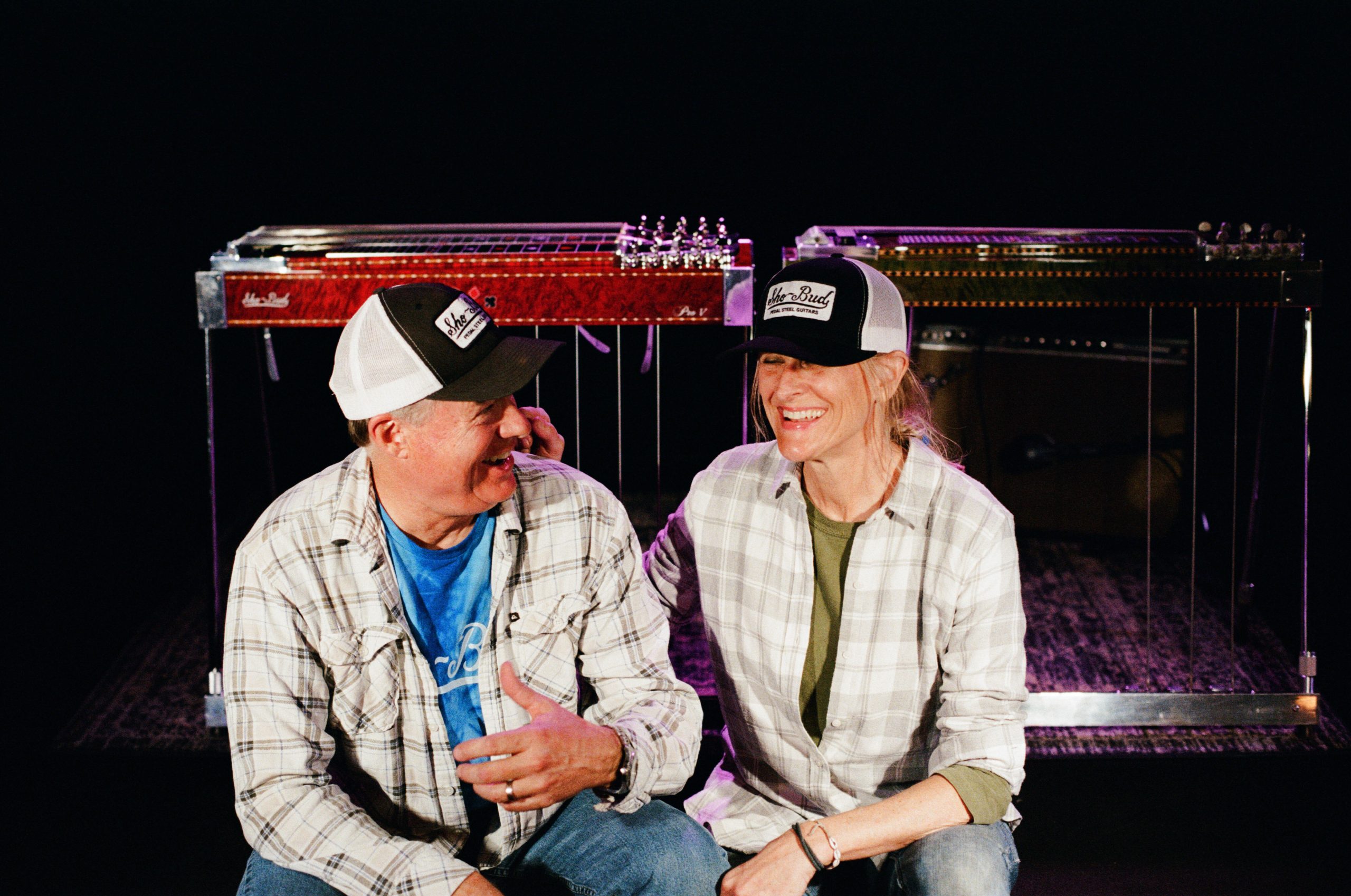 Sho-Bud co-CEOs and siblings Will Jackson and Dawn Jackson.
Sho-Bud co-CEOs and siblings Will Jackson and Dawn Jackson.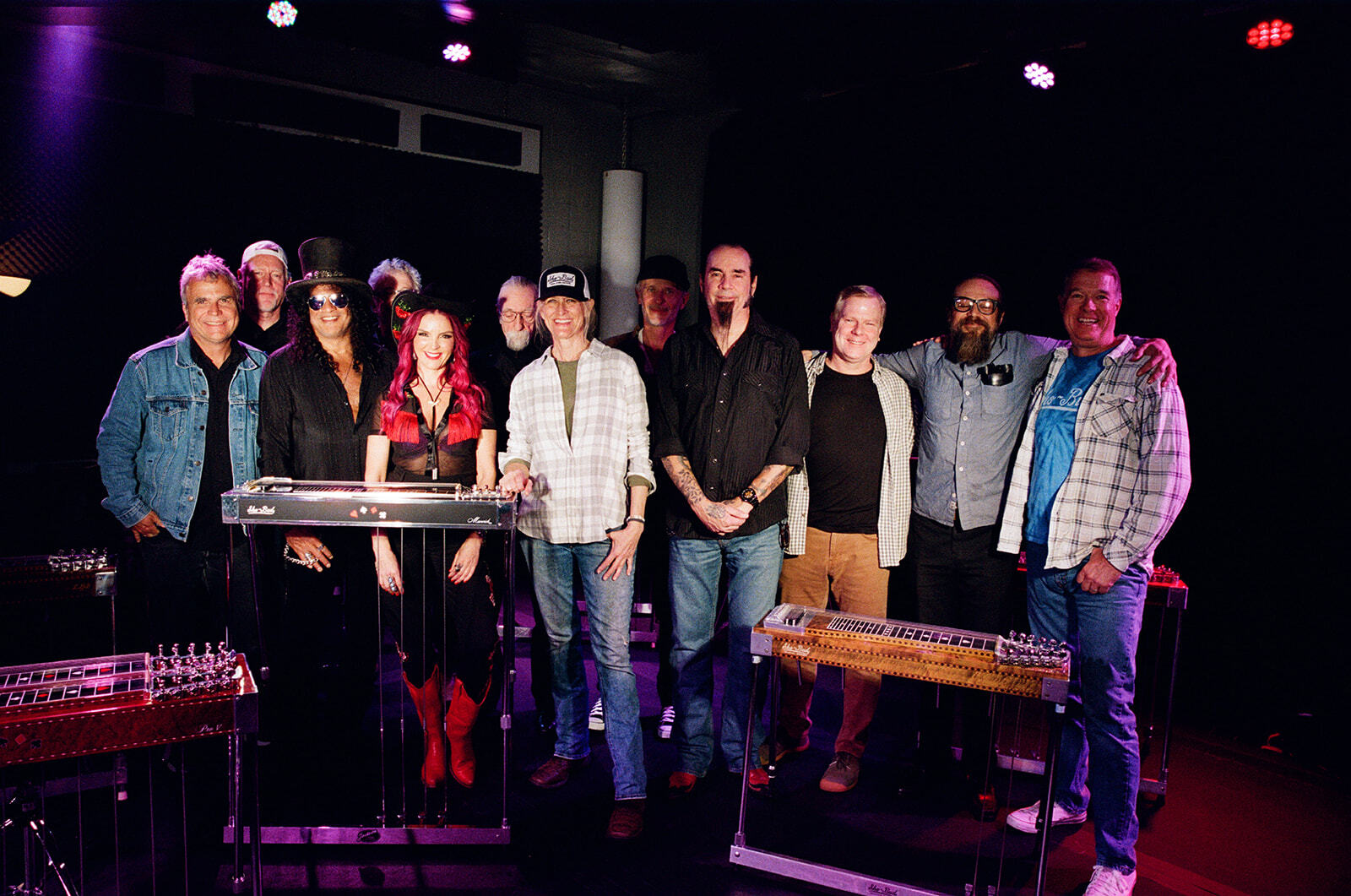 (L to R) Kyle Ince, Bob Sheehan, Slash, Ted Stern, Andrea Whitt, Skunk Baxter, Dawn Jackson, Pavel, Hexx Henderson, Mark Tucker, Rocco DeLuca, and Will Jackson pose for a group photo at the Sho-Bud Showcase Live at the Desert 5 Spot in Los Angeles.
(L to R) Kyle Ince, Bob Sheehan, Slash, Ted Stern, Andrea Whitt, Skunk Baxter, Dawn Jackson, Pavel, Hexx Henderson, Mark Tucker, Rocco DeLuca, and Will Jackson pose for a group photo at the Sho-Bud Showcase Live at the Desert 5 Spot in Los Angeles.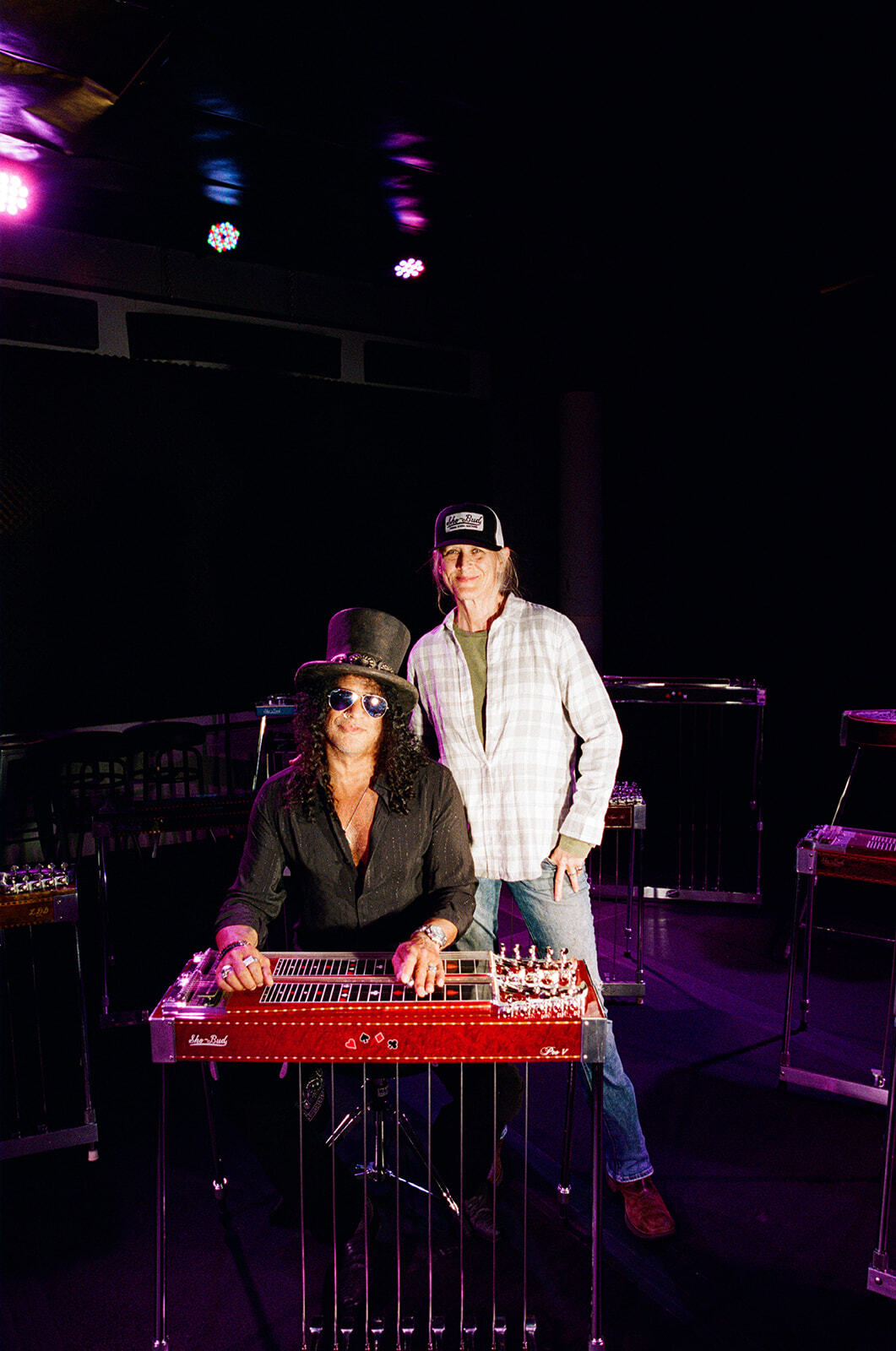 Sho-Bud CEO Dawn Jackson poses with Slash and a Sho-Bud Steel Guitar.
Sho-Bud CEO Dawn Jackson poses with Slash and a Sho-Bud Steel Guitar.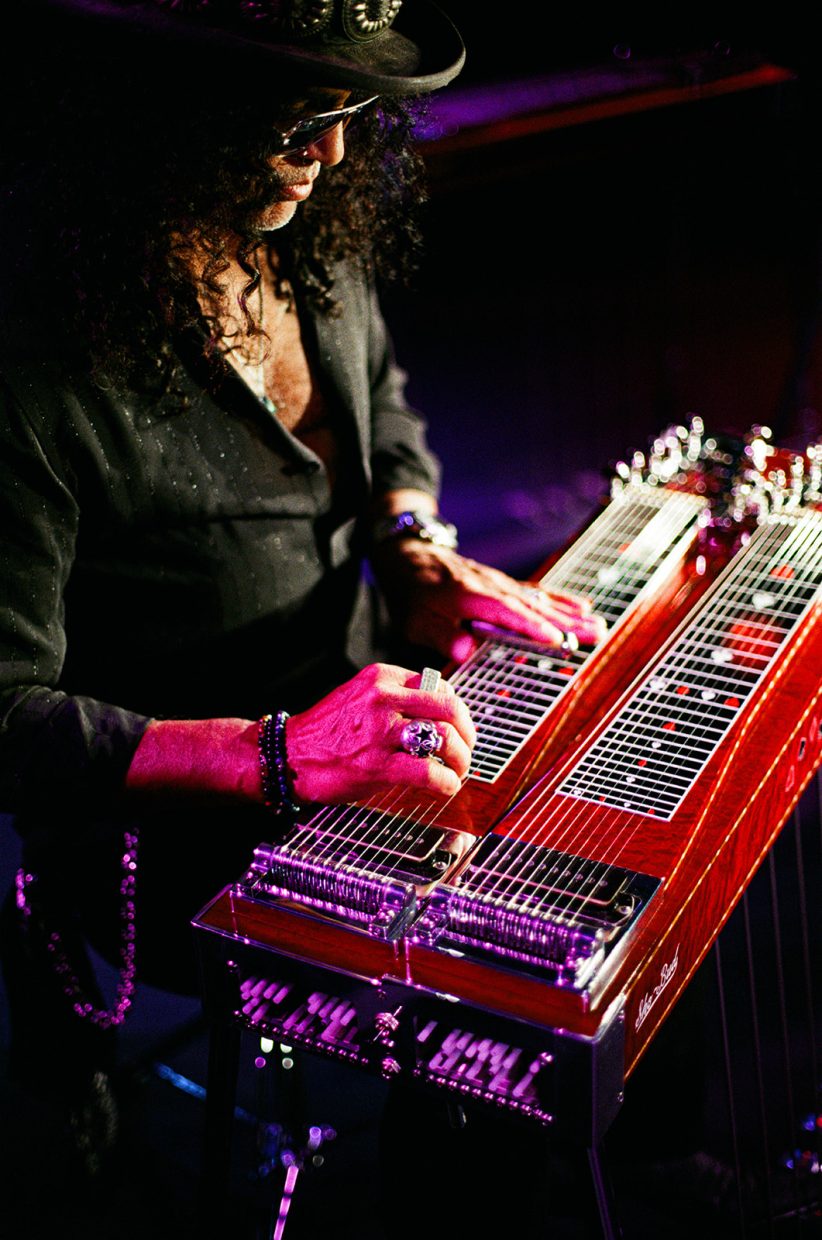 Slash plays a Sho-Bud Steel Guitar.
Slash plays a Sho-Bud Steel Guitar.